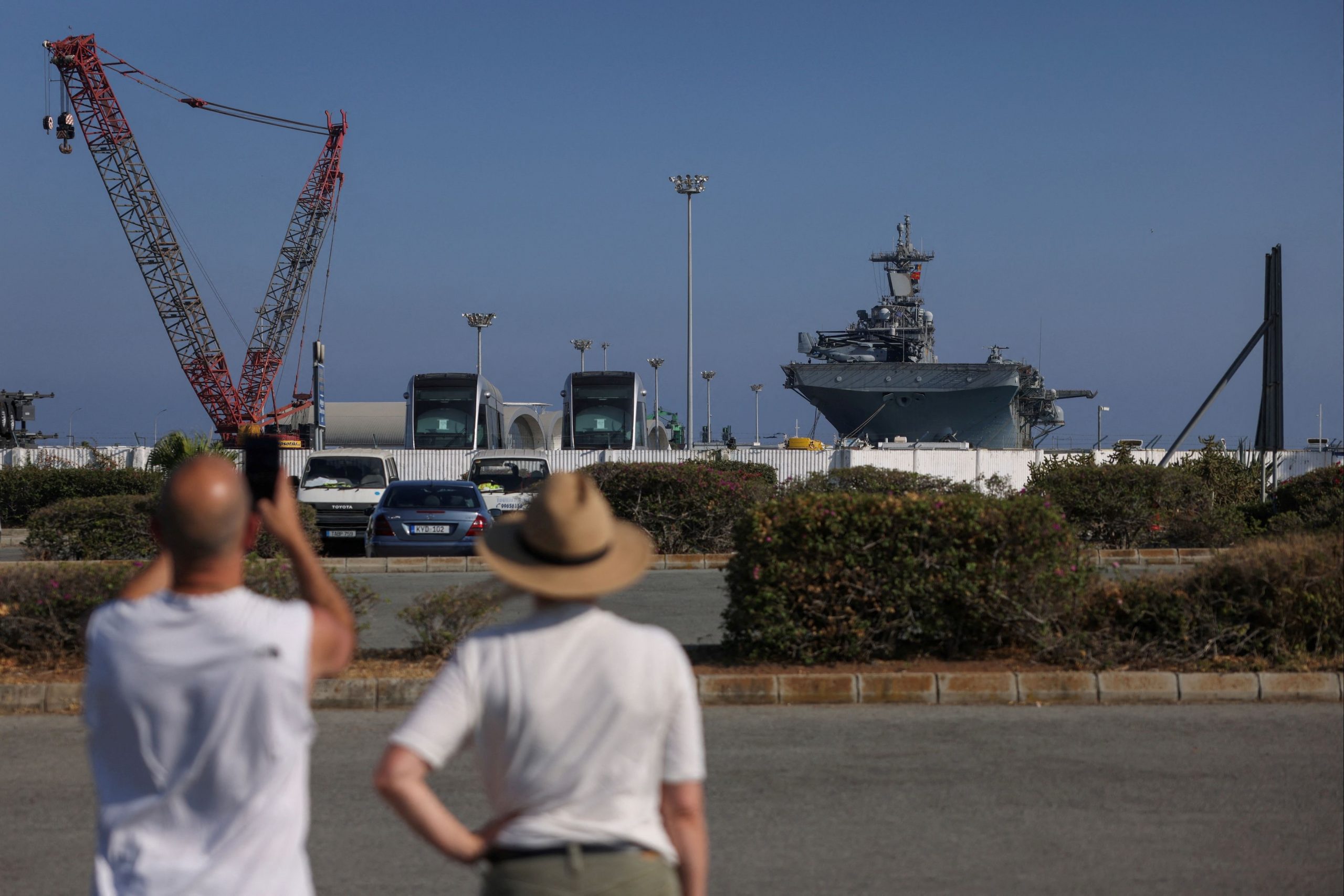As ceasefire talks over the Gaza conflict are set to resume next week, geopolitical strategist John Sitilides suggests that the Biden administration’s emphasis on de-escalation instead of deterrence might be inadvertently increasing the risk of broader regional instability.
In an interview with To Vima, the Greek-American analyst argues that the current U.S. strategy may be insufficient in curbing Iranian aggression. “The focus on de-escalation might be seen as a sign of reluctance to confront Iran directly, which could embolden Tehran,” Sitilides explains.
He warns that while Israel must defend itself against threats, the U.S. risks being pulled into a wider conflict, especially if Iran continues to escalate. More specifically, he contends that the current U.S. approach might allow Tehran to dictate terms, which could destabilize the region further.
“I don’t know that we have reached that level of deterrence yet because the rhetoric on de-escalation means that we are letting the Iranians decide how America will act, as opposed to America being prepared to act in its own interests, however, it sees fit to,” Sitilides said.
He also underscores the need for a shift towards a more robust deterrence strategy. “Deterrence means being prepared to act decisively, if necessary, rather than merely trying to avoid conflict.”
While advocating for a more robust deterrence posture, Sitilides acknowledges the need for caution. He believes that the U.S. must carefully navigate to prevent being drawn into a direct confrontation with Iran and its proxies in the Middle East.
“Iran can activate the Iranian Revolutionary Guard Corps and its proxies to attack what is a target-rich environment in the Middle East of more than a dozen American military bases, housing more than 50,000 American soldiers, all within very easy reach,” Sitilides explains. “This would then probably necessitate a high-order kinetic response from the U.S. government against Tehran.”
Confronting Iran: The Missing Threat
While the Biden administration has avoided openly threatening Iran, Sitilides believes this approach weakens U.S. diplomacy. “Diplomacy is most effective when backed by the credible threat of force,” he explained, adding that without this, the U.S. may lose control over the escalation dynamics in the region.
“You need to have that as a credible deterrent. But that needs to be a matter of what we call in American strategy escalation dominance,” he maintained. “Who controls the process of escalation? If your enemy does, you are in a losing situation. If you do, you are in a winning situation.”
Sitilides suggests several non-military deterrence measures, such as reimposing severe economic sanctions on Iran, cyber-attacks on key infrastructure, and targeted actions against Iranian leadership. He argues that these measures could pressure Iran to curb its support for militant groups without resorting to direct military conflict.
“Ultimately, the Iranian regime cares more about regime preservation than anything else, including the well-being of the Iranian people,” Sitilides said. “So, if you threaten their existence, you may be able to have them change their behavior.”
Trump’s ‘Peace Through Strength’ and Potential Return
Reflecting on former President Trump’s approach to Iran, Sitilides highlights his administration’s sanctions and energy policies, which significantly targeted Iran’s economy. He notes that these measures also helped limit Tehran’s regional influence by reducing its financial resources.
Should Trump return to the White House, Sitilides anticipates a resurgence of these policies. “A second Trump administration would likely reinstate severe sanctions and flood global markets with American energy,” he predicted, adding that Trump would likely strengthen ties with Sunni nations like Saudi Arabia and the UAE, which view Iran as a major threat.
Kamala Harris’ Foreign Policy
As Vice President Kamala Harris approaches her debut at the Democratic National Convention, Sitilides believes that her foreign policy stance remains uncertain.
According to him, Harris has not yet detailed her positions on key issues like the Middle East, leading to speculation that she might maintain Biden’s policies. However, Sitilides also points out that Harris could face pressure from the progressive wing of the Democratic Party, which has become increasingly critical of Israel.
Republican Approaches Vis-a-Vis the Mideast in the Future
Looking ahead, Sitilides suggested that a potential Republican administration might adopt a different approach if the Gaza conflict remains unresolved by January.
While Trump has been a strong supporter of Israel, Sitilides noted that personal tensions between Trump and Netanyahu could complicate U.S.-Israeli relations. However, he emphasized that Congress, which remains strongly pro-Israel, would play a crucial role in determining U.S. support.
“It’s not just about who the president is,” Sitilides noted. “Congress ultimately has the power of the purse. It decides, for example, whether there will be further arms shipments and what level of support we will offer if the conflict continues.” Last week, U.S. approved $20 billion in arms sales to Israel without any objection from the side of Congress.
As the Middle East remains volatile, the U.S. faces difficult decisions about how to balance support for Israel with the need to prevent a broader regional war. Whether through deterrence or diplomacy, the stakes are high, and the next U.S. administration will need to navigate these challenges with care.
John Sitilides is a geopolitical strategist at Trilogy Advisors LLC and a senior fellow for National Security at the Foreign Policy Research Institute. Until recently, he served as the Southern Europe Regional Coordinator for the Foreign Service Institute, where he organized and directed professional development training programs for American diplomats stationed in Greece, Turkey, and Cyprus.



